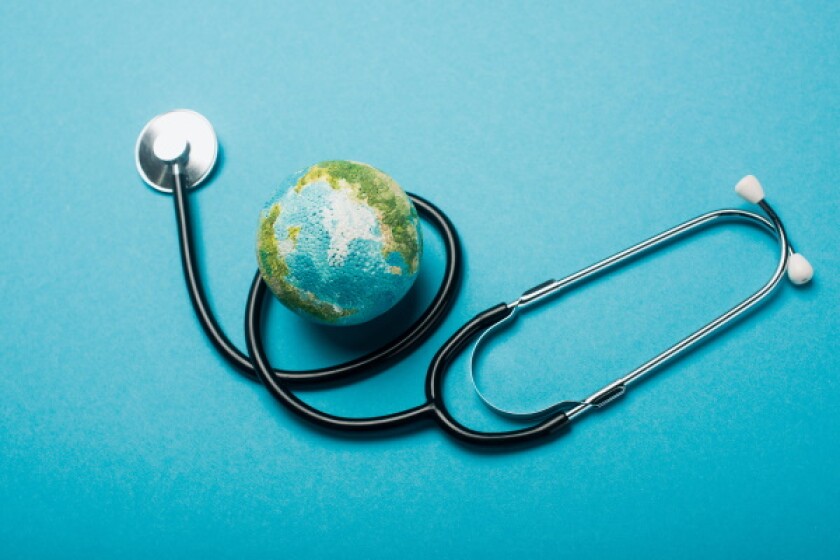The world received some good news this month. Two novel mRNA vaccines have shown to be over 90% effective against COVID-19, and a third vaccine from AstraZeneca looks like it might be close behind. These vaccines are the result of colossal efforts from the pharmaceutical industry to come together and find a solution to what has been one of the most dire public health crises the world has seen. But while discovering vaccines was a test of science, delivering them equitably is going to be a test of our humanity.
Already, global rights groups such as Human Rights Watch and Amnesty International are sounding the alarm that rich countries are pre-buying the bulk of COVID vaccines. Data from Duke University’s Global Health Innovation Centre shows that a handful of developed countries have already bought over 50% of the pre-pledged doses. A separate Oxfam report said that even if all five leading vaccine candidates in phase three clinical trials are approved, nearly two thirds of the world’s population will not be vaccinated until 2022. Developing countries cannot wait that long.
Meet Cristian Fracassi, the man behind the COVID snorkel mask
Open COVID co-creator: compulsory licensing should be treasured sword
In October, India and South Africa asked the World Trade Organization (WTO) to waive certain provisions of the TRIPS Agreement to help prevent, contain and treat COVID-19. The provisions in question are Sections 1, 4, 5, and 7 of Part II of TRIPS, which cover IP rights including designs and patents. This proposal would only cover COVID-19 vaccines and therapies, and would be only for the duration of the pandemic.
After three hours of deliberation, a group of predominantly wealthy countries, including Canada, the US, EU member nations and the UK, signalled that they were against the proposal to lift IP restrictions, and instead argued that developing countries should take advantage of the so-called ‘TRIPS flexibilities’ that would allow for compulsory licensing. The problem is that right now the developing world does not need flexibility. It needs a giant bulldozer to make sure absolutely nothing will prevent the equitable distribution of vaccines.
The delegate from South Africa argued in October that the “product-by-product” approach of compulsory licensing under the TRIPS flexibilities would be restrictive during a pandemic. Many countries in the developing world would face hurdles in their national laws, and some lack the institutional capacity to implement the TRIPS flexibilities effectively. The representative specifically pointed to Article 31bis, which requires every product that has been issued a compulsory licence to be identified with specific packaging and quantities. This could lead to further delays to access.
History repeating itself?
It should be noted that these countries are not in uncharted territory when it comes to IP rights standing in the way of access to medicine. During the height of the HIV pandemic many developing countries could not afford patented antiviral medications and had to watch as their citizens died from lack of access. The developing world is also no stranger to vaccine hoarding. During the 2009 swine flu pandemic, many rich countries placed large pre-orders on vaccines that resulted in fewer available doses left for poorer countries. It looks like once again history is repeating itself with COVID-19.
Pharma innovators came forth with the argument that waiving IP rights would undermine the IP system, which they rely on to incentivise the important work of researching new medicines. While this is a fair argument in the abstract, the reality is that COVID-19 is not a typical pandemic in the way it has been funded. The public sector has poured huge amounts of resources into researching vaccines and therapies. The EU tracker of pledges counts nearly €16 billion ($19 billion) in government funds, and the US has also contributed billions with Operation Warp Speed. Some vaccine makers have made the decision to waive IP rights; Moderna has said it will not enforce its patents for the duration of the pandemic. This is fantastic especially as the company received nearly $1 billion in US government funding for its vaccine research.
Waiving IP rights alone will not be enough to ramp up manufacturing and ensure global access to vaccines, which are complex treatments to make. This means that even if patent rights are suspended, generic drug manufacturers need the technology and the know-how to produce enough for populations. In June the World Health Organization created the Covid-19 Technology Access Pool (C-TAP), in which pharma companies can voluntarily contribute their IP, trade secrets, and know-how. So far only 40 countries have pledged support of the C-TAP, and none of the pharma companies developing the vaccines have joined. It is not a reasonable position for developed countries and pharma companies to undermine the efforts of voluntary mechanisms with the C-TAP while simultaneously arguing that developing nations should resort to compulsory licensing.
It is important to keep in mind that how governments and the pharma industry choose to respond to this pandemic will be remembered for years to come. So far the world has already seen shortages of COVID therapies and personal protective equipment, as well as accusations of ‘vaccine nationalism’. This need not be the case. When COVID exploded on the global stage there were great cries for a ‘people’s vaccine’ that would be distributed equitably around the world. Science has prevailed to give us the tools to contain and prevent the spread of the virus, and our compassion should make sure those tools are distributed fairly.
As vaccines inch ever closer to market, the WTO should adopt India and South Africa’s proposal to lift IP restrictions during the pandemic.











